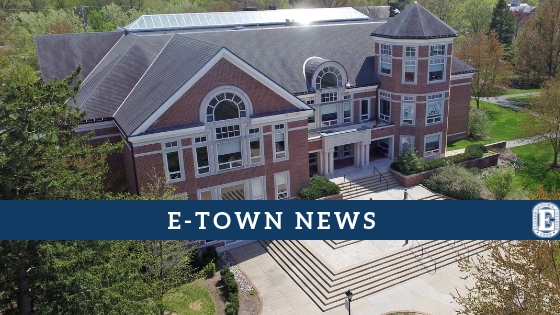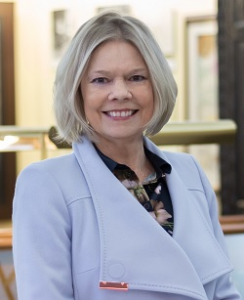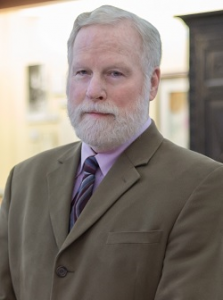By Samantha Romberger
“I was fascinated with the fact that two of my favorite authors turned out to be best friends,” said David Downing, referring to C.S. Lewis and J.R.R. Tolkien.
David and Crystal Downing are the Co-Directors of the Marion E. Wade Center at Wheaton College in Illinois, as well as husband and wife. David Downing is a former professor with the Elizabethtown Department of English.
The two will visit E-town on Scholarship and Creative Arts Day (SCAD), an annual celebration of Elizabethtown College students’ ideas and creativity. Students present academic research and showcase their talents. The Downings will co-present the SCAD keynote address, titled ‘The Inklings: Creativity, Community, and Vocation.’ David Downing’s former students at Elizabethtown College are excited to hear him and Crystal speak.
“I don’t know anything about Lewis and Tolkien,” said Tasha Lewis, Junior Professional Writing Major at Elizabethtown College. “But, if [David] Downing is teaching, I’m sure I’ll enjoy learning. When he was my professor, he always made me interested in every topic, no matter what it was.”
David Downing will speak about The Inklings, an informal literary club to which both Lewis and Tolkien belonged in Oxford, England. The two authors read each other’s works aloud, offering suggestions and encouragement. The club met two or three times a week for roughly twenty years, and Lewis and Tolkien remained friends until Lewis’s death.
“They spurred each other to greater literary accomplishments but also relished each other’s gifts,” said David Downing.
He mentioned literary clubs have a tendency to fall apart as authors’ egos clash, yet Lewis and Tolkien managed to support each other and grow as writers during their years in The Inklings. He will talk more about why The Inklings was so successful during his SCAD keynote address.
Interestingly enough, when the pair met, Lewis was an agnostic, raised in a religious family that attended the church of Ireland. Tolkien was a devout Catholic. Tolkien encouraged Lewis to become a Christian again, which greatly influenced his future writing. On the other side of the coin, Lewis encouraged Tolkien to publish “The Lord of the Rings,” which “moved him [Lewis] to tears,” according to David Downing.
Ultimately, “If it weren’t for Lewis we wouldn’t have heard of Tolkien, and if it weren’t for Tolkien we wouldn’t have heard of Lewis,” said David Downing. When he said this during a past interview, his analysis was met with, “and if it weren’t for Lewis and Tolkien, we wouldn’t have heard of Downing.”
In addition to David Downing’s interpretation of The Inklings, Crystal Downing will present on her research of Dorothy Sayers, a detective novelist and playwright who greatly influenced Lewis. Sayers was the first high-profile writer to retell gospel stories in a contemporary setting. She published a series of plays for the Easter season. They were controversial because her actors used contemporary slang rather than the language of the King James Bible.
Lewis reread these plays every spring and loved the idea of telling Bible stories without being hindered by antiquated language. This likely had an indirect impact on his “Chronicles of Narnia” series.
All three of these authors had an impact on one another and, in turn, an impact on readers for many years to come. The Downings assert that we, as college students, have much to learn from the lives of these great writers. They loved to read and write and talk about literature and managed to make a living off of their passions. David Downing says that this highlights how important it is to “find a vocation that feeds your heart and mind and soul.”
David Downing has published four scholarly books on C.S. Lewis, is the consulting editor on the “Lewis for the Publications of the Modern Languages Association” and writes a blog on Lewis. Crystal Downing has published four scholarly books that bridge religion with cultural studies and media, as well as several research essays. Their keynote address will take place on Tuesday, April 16 in Gibble Auditorium at 11 a.m., in conjunction with the SCAD celebration. The event is free to attend and open to the public. Contact Carol Ouimet, Program Coordinator for the Wenger Center, with any questions.
About Samantha Romberger
Samantha Romberger is an English Professional Writing major with minors in Women and Gender Studies and Anthropology. She is the assistant editor for the Elizabethtown College newspaper, an academic advisor and a writing tutor.



